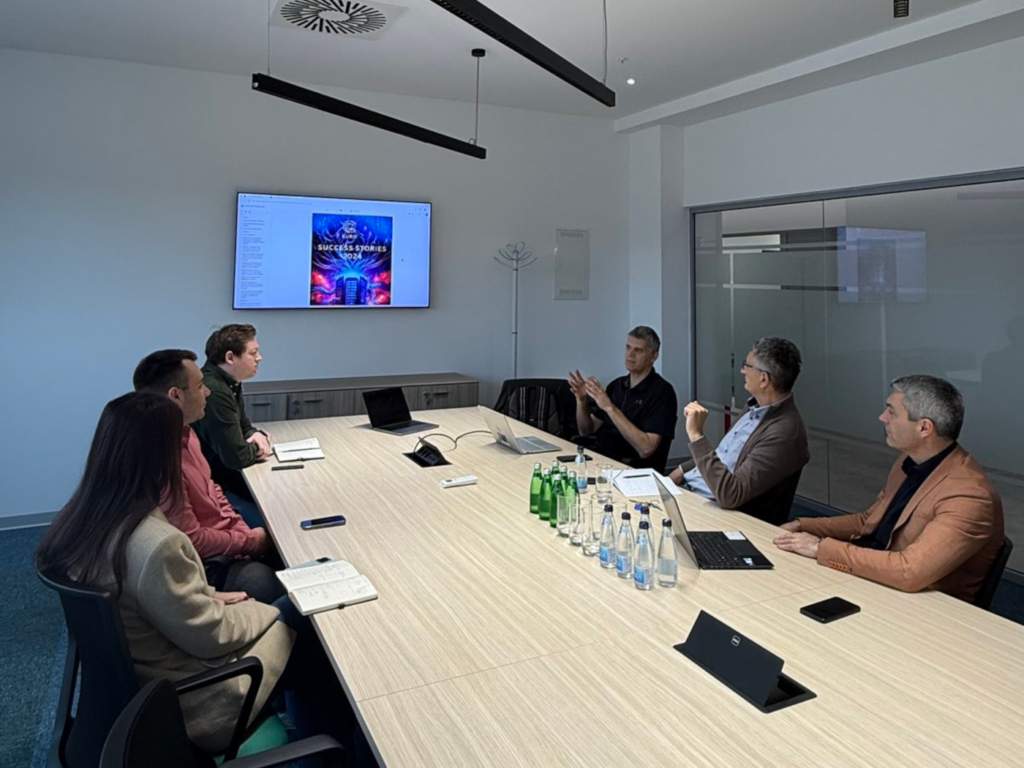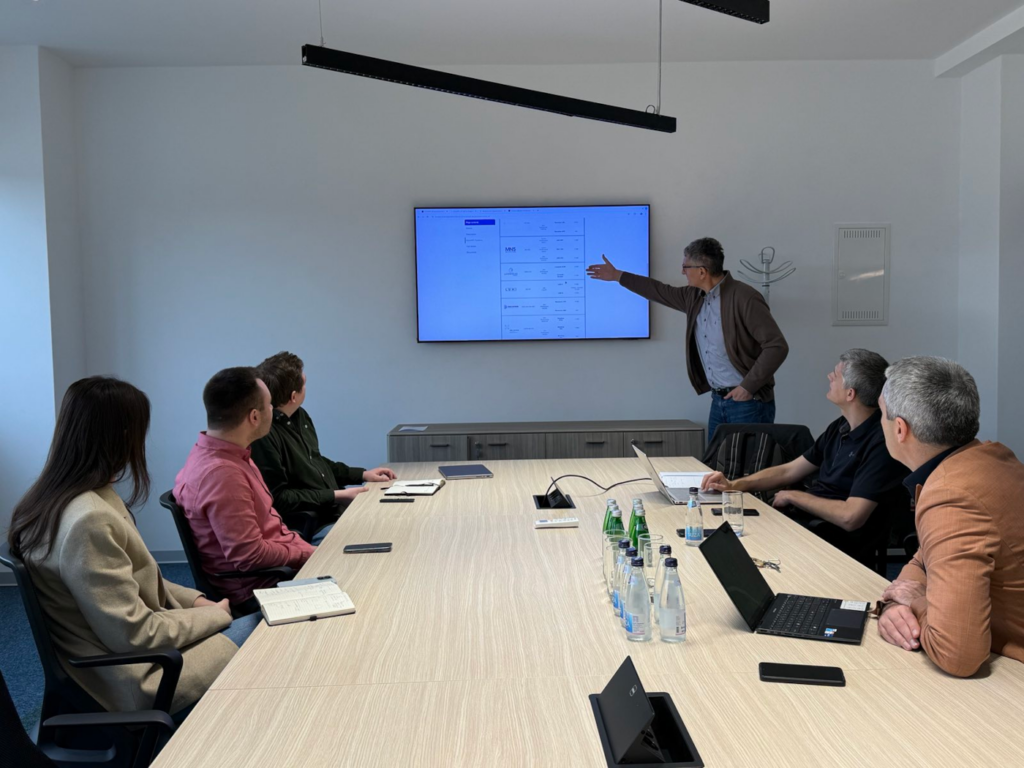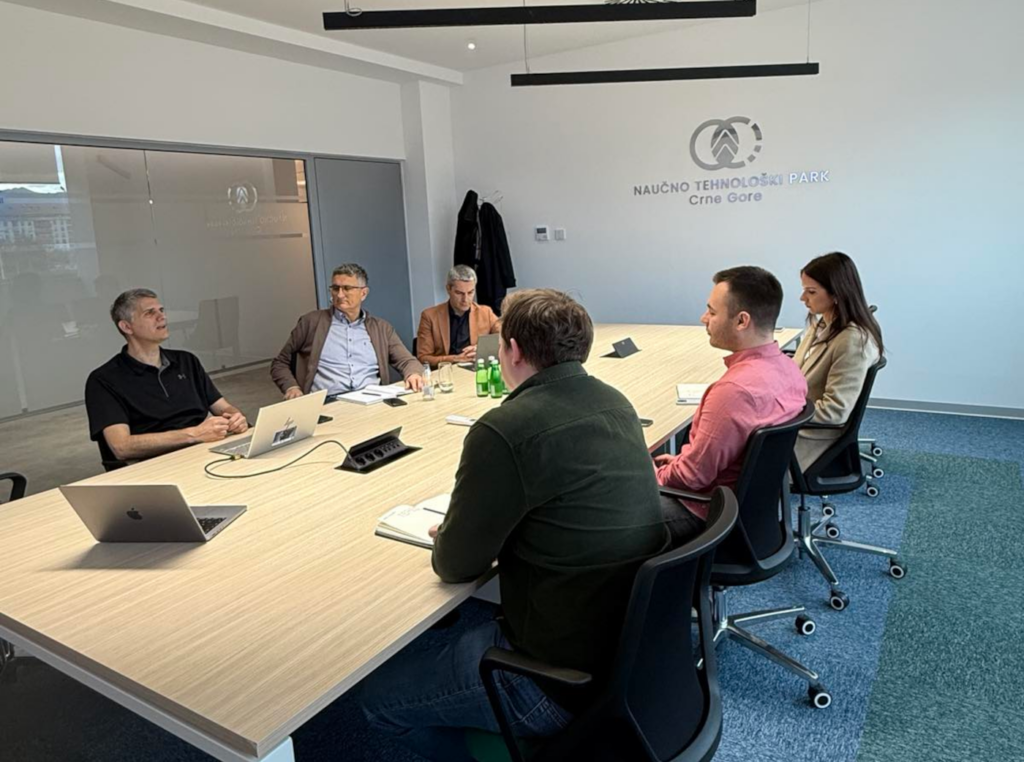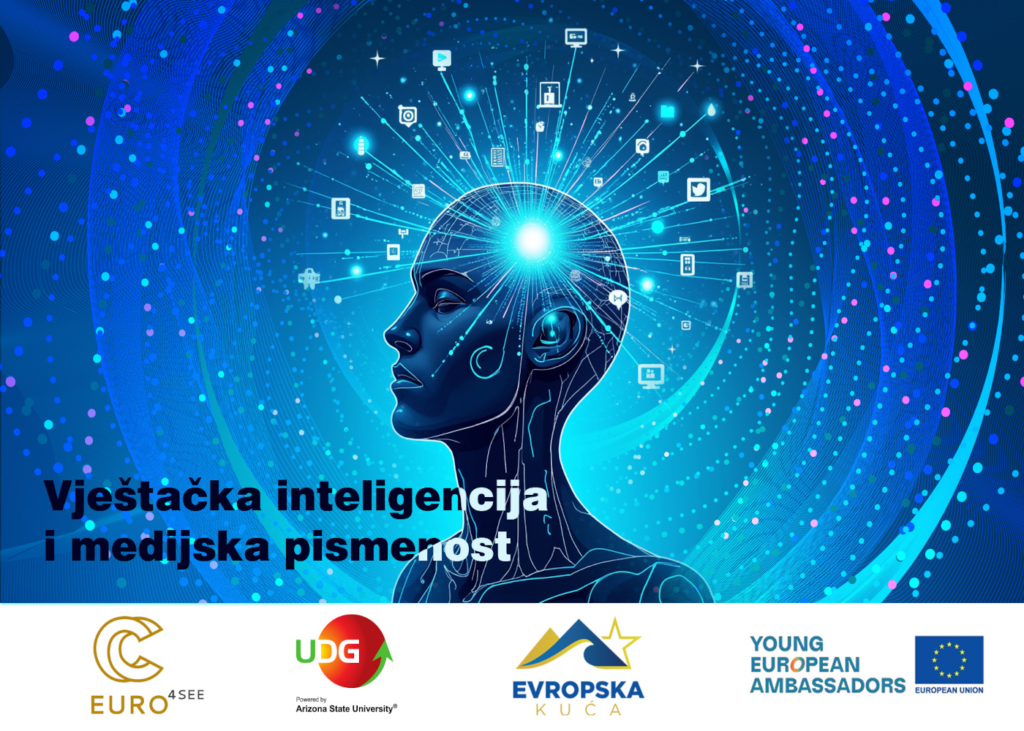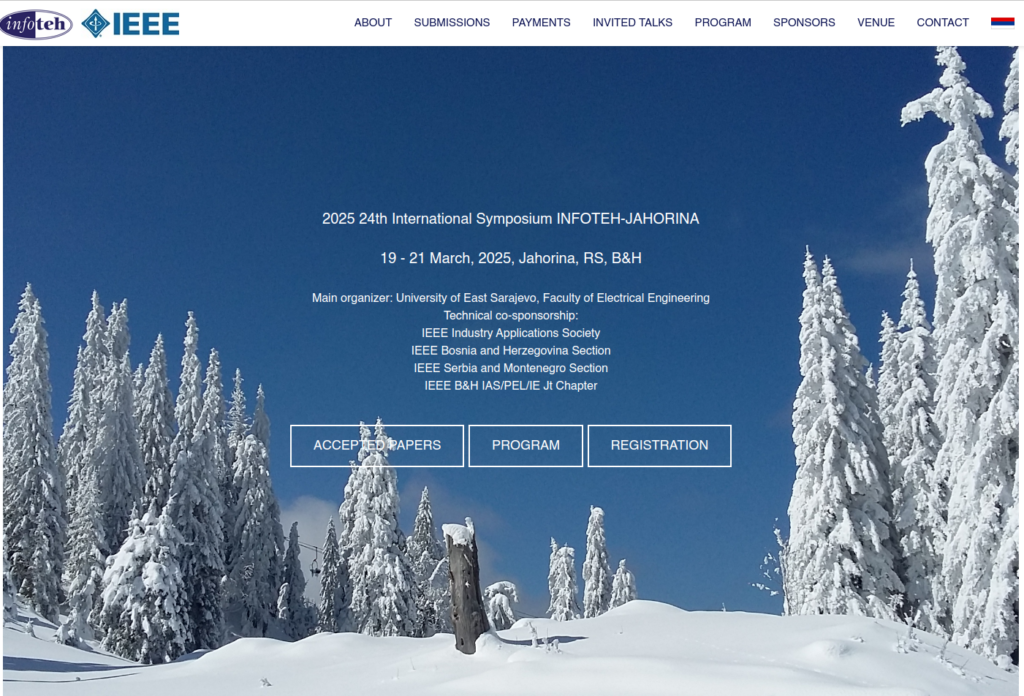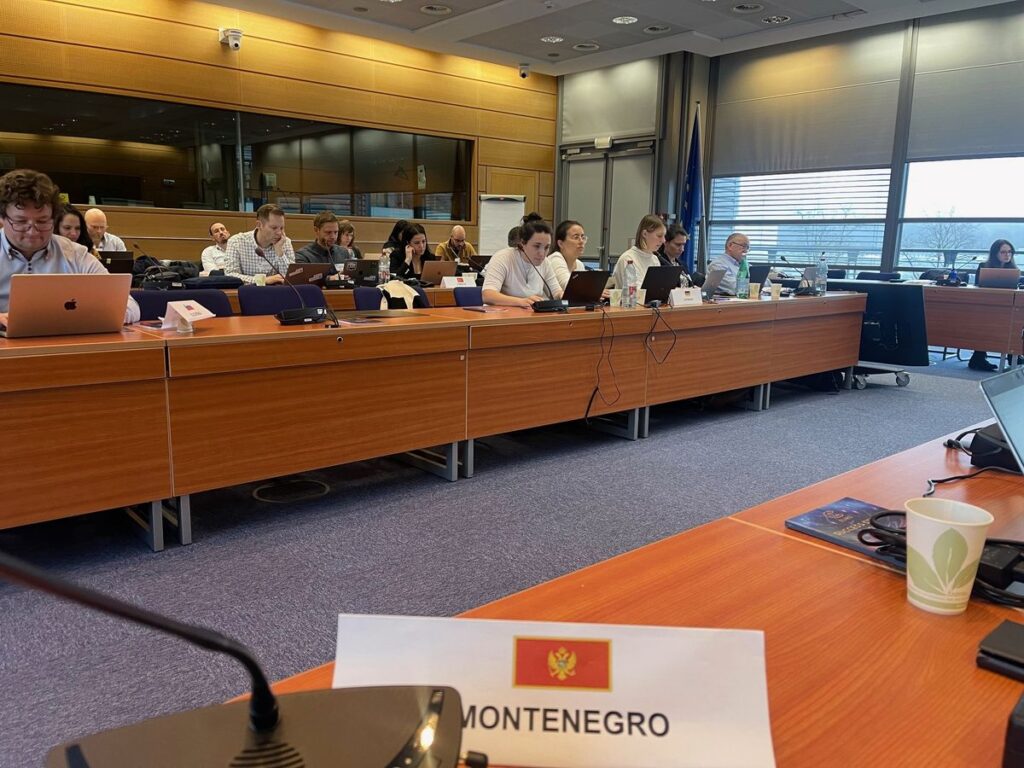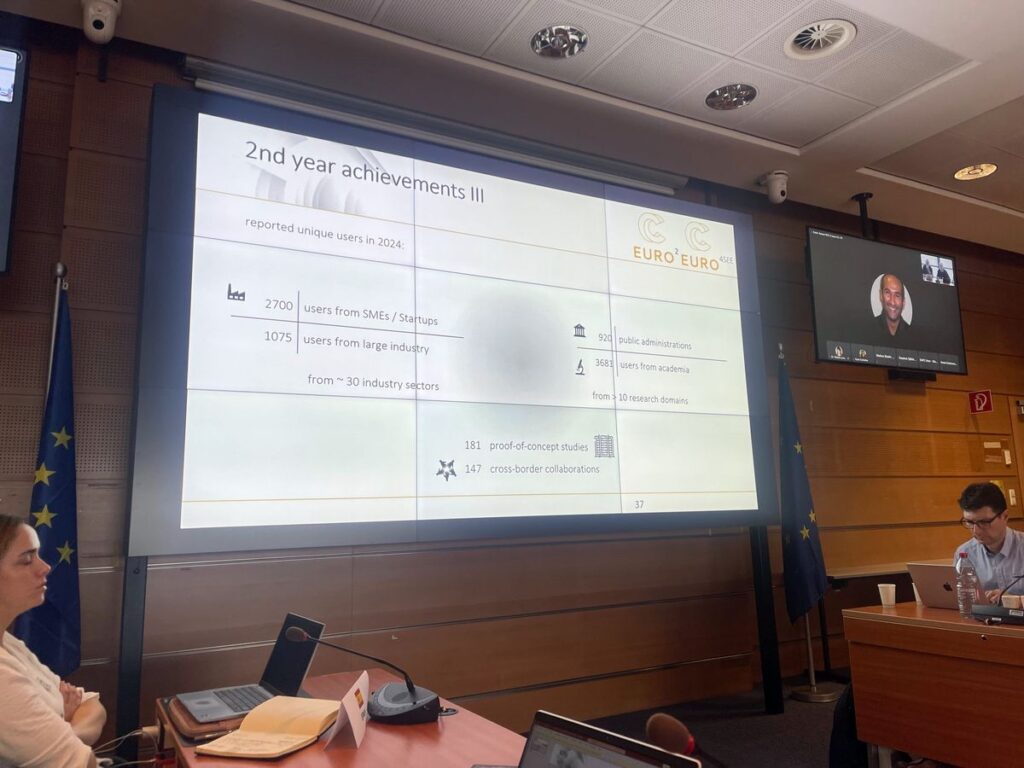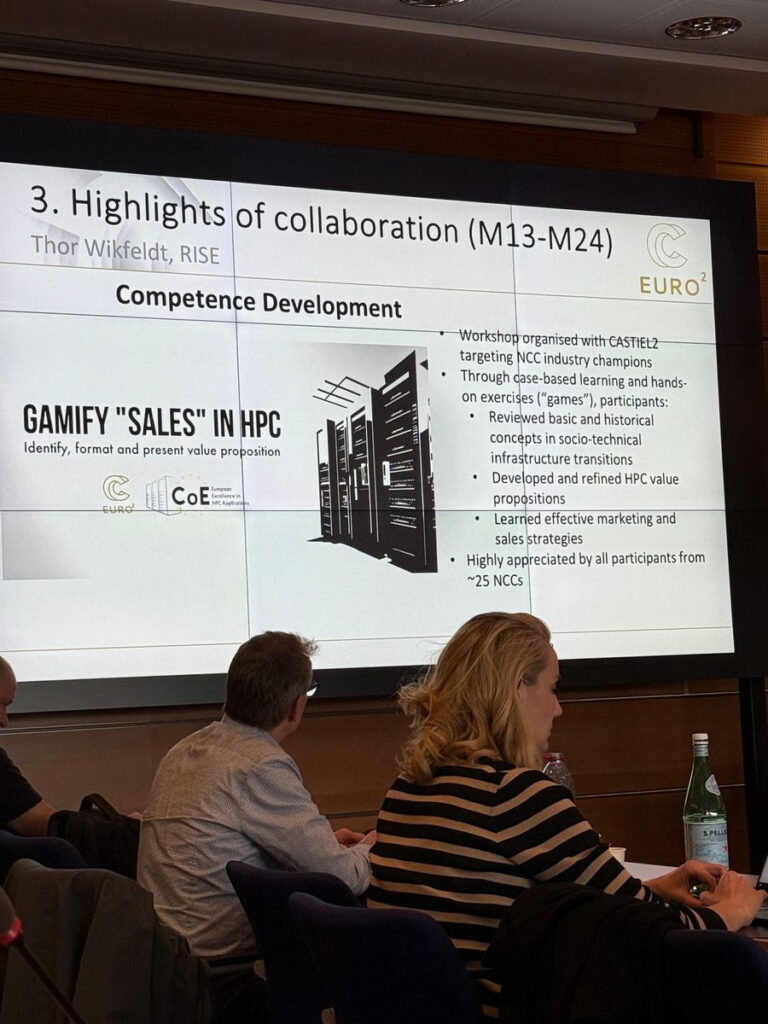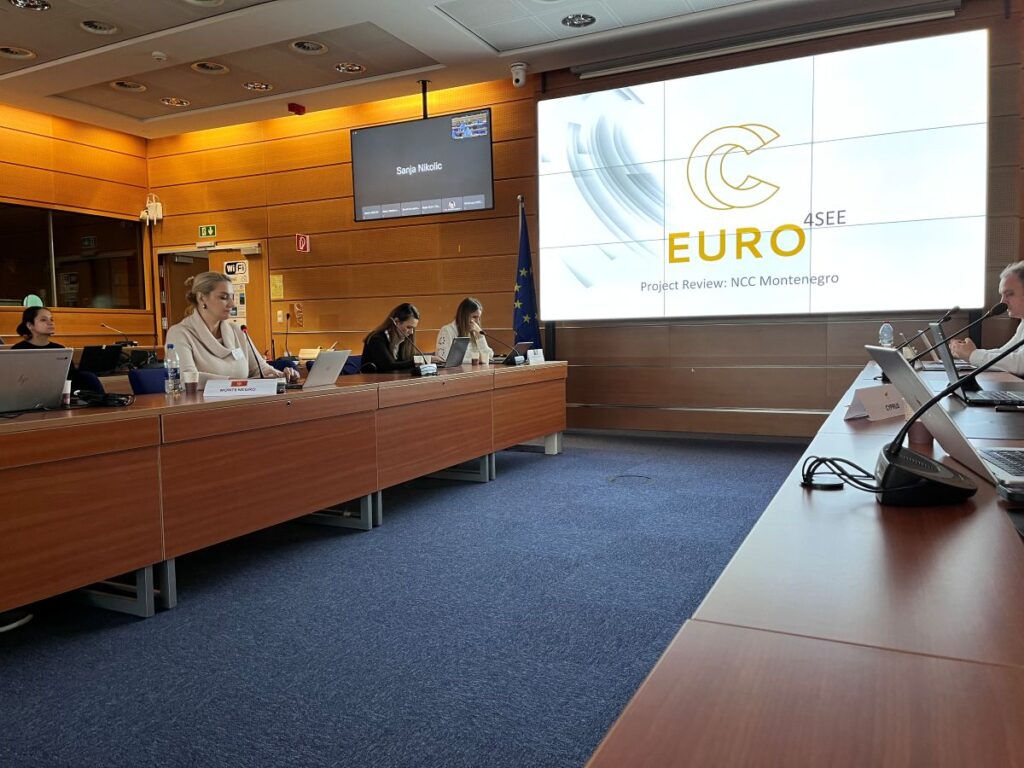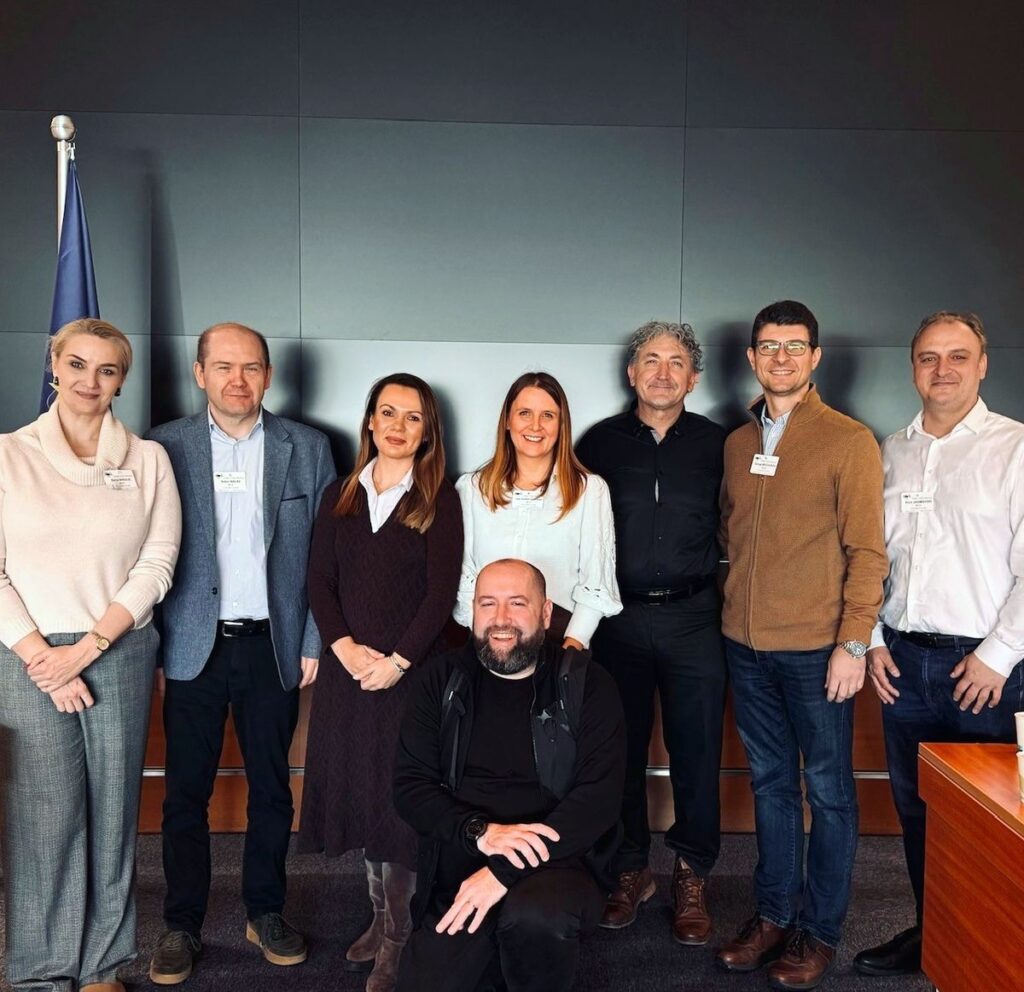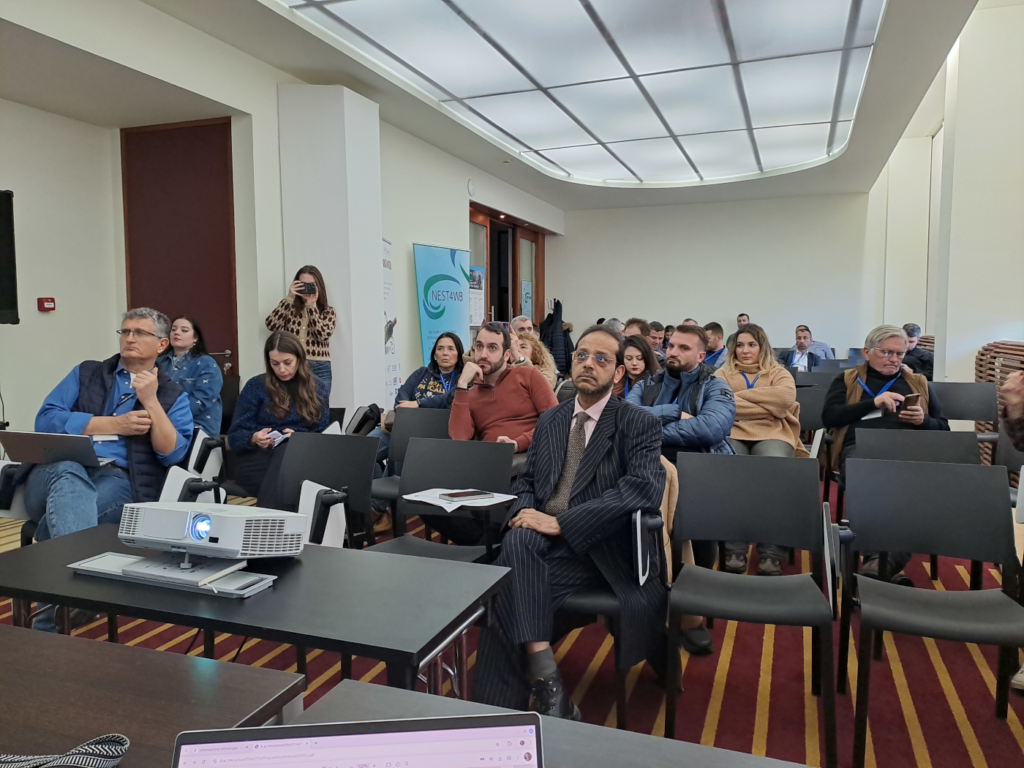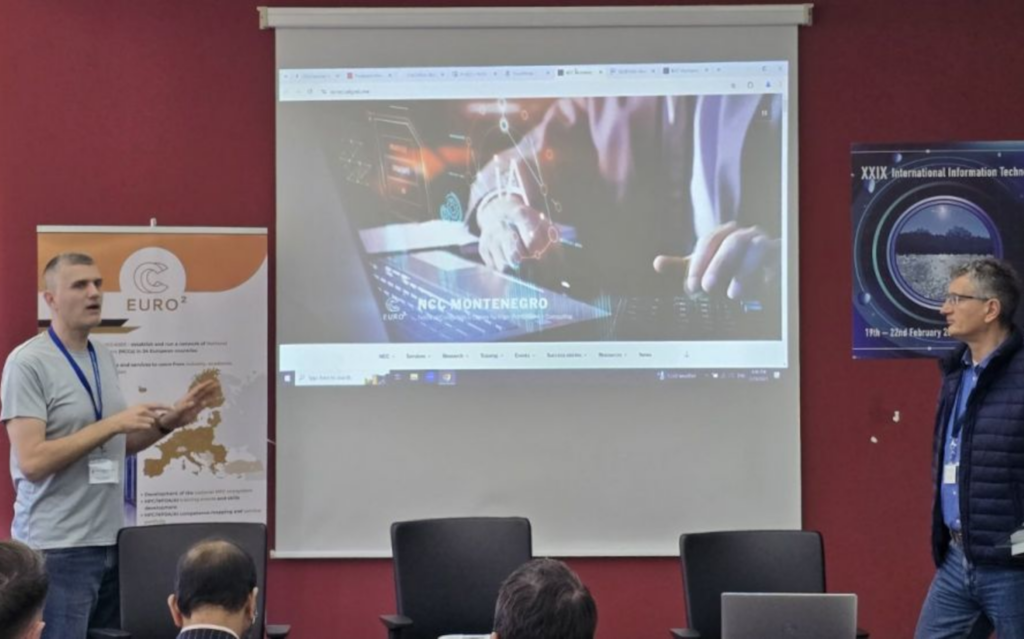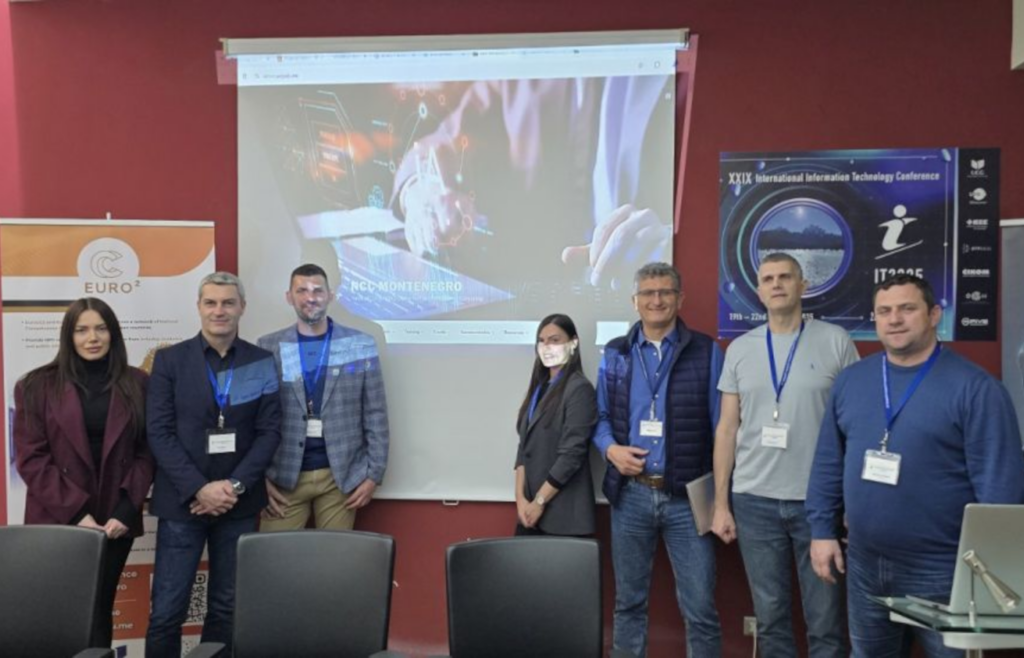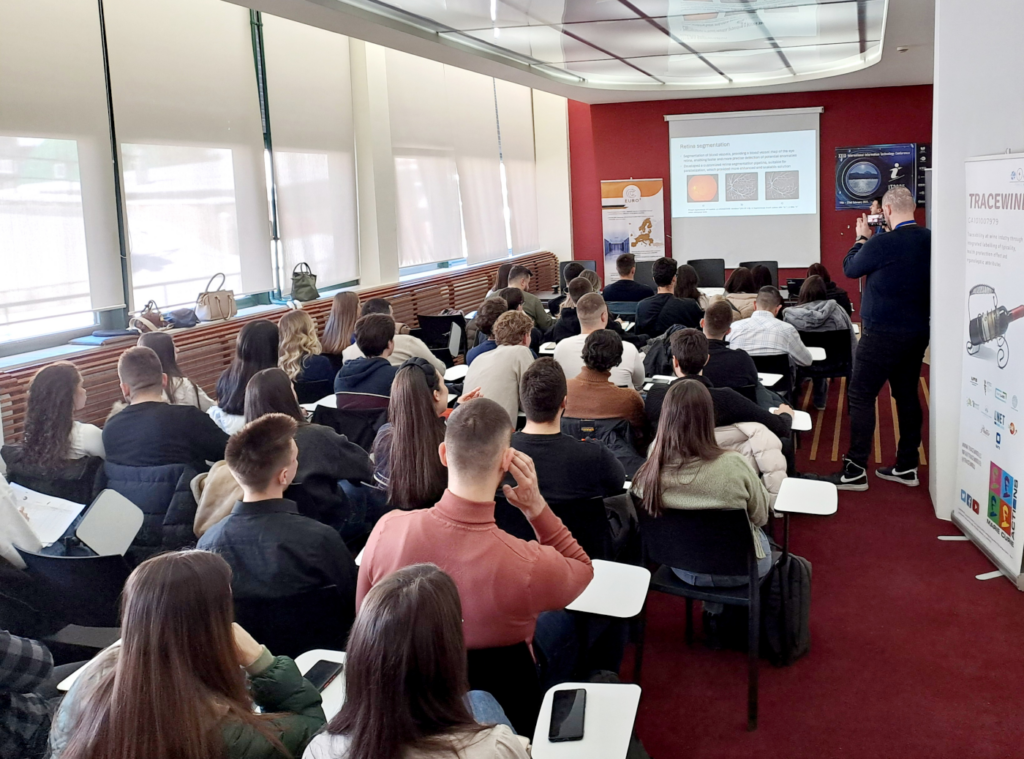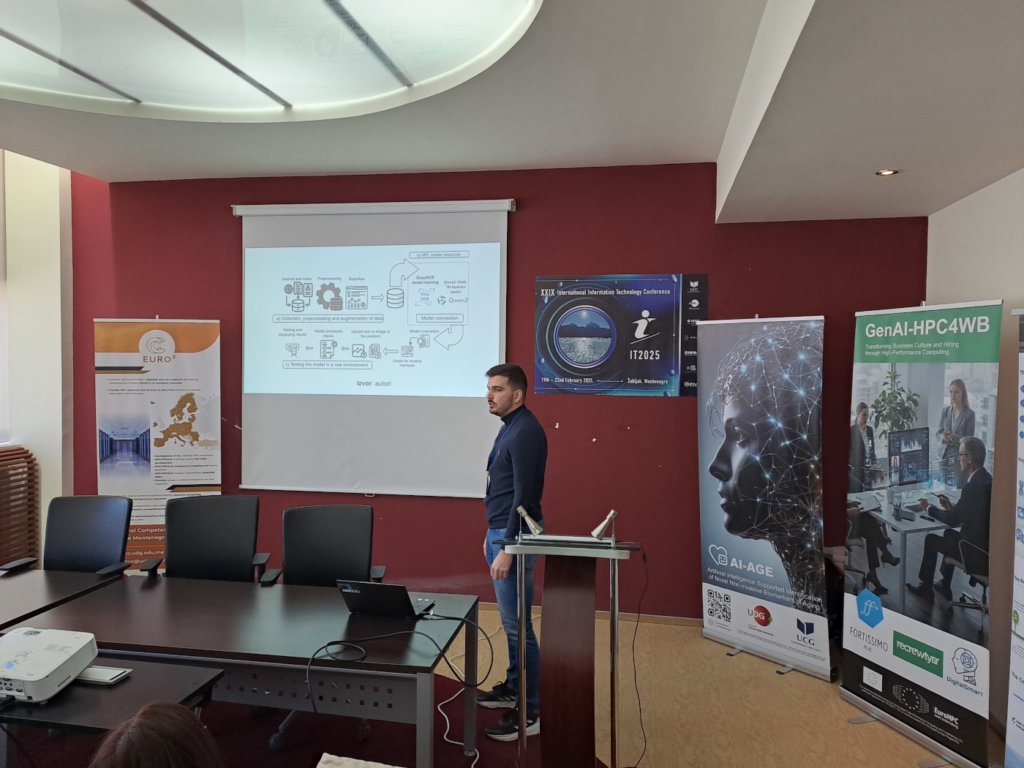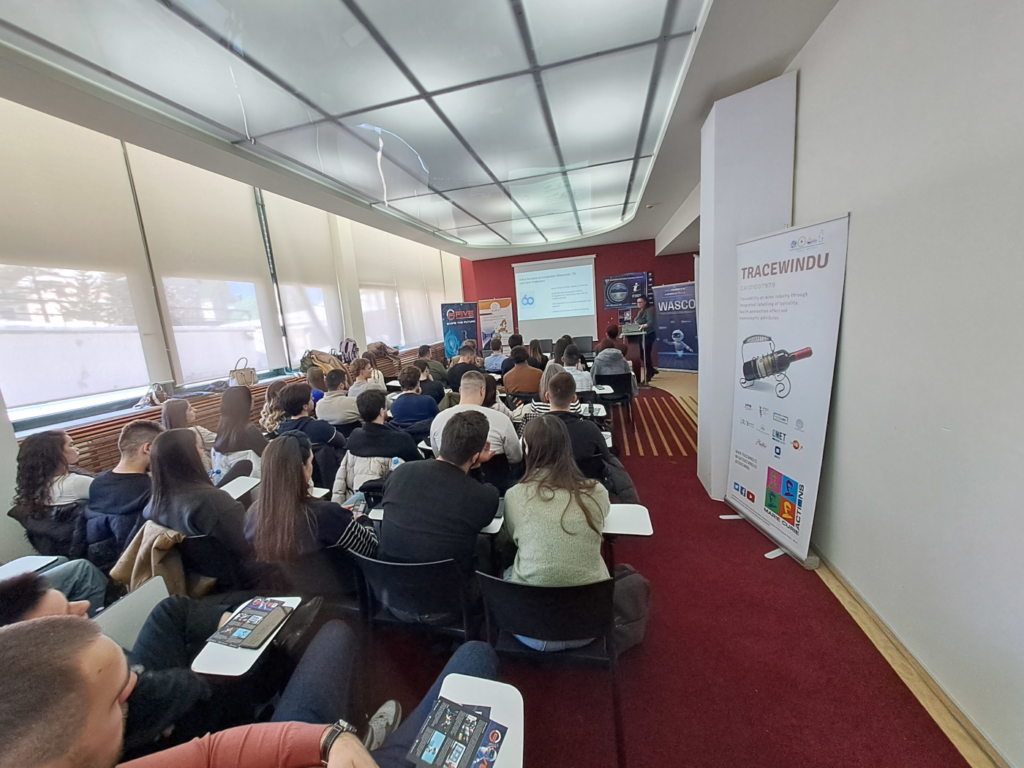On April 3, 2025, representatives of HPC NCC Montenegro attended the Open Day hosted by the Science and Technology Park (STP) of Montenegro, seizing the opportunity to connect with innovative companies, startups, and entrepreneurs with the potential to leverage HPC for AI-driven projects.
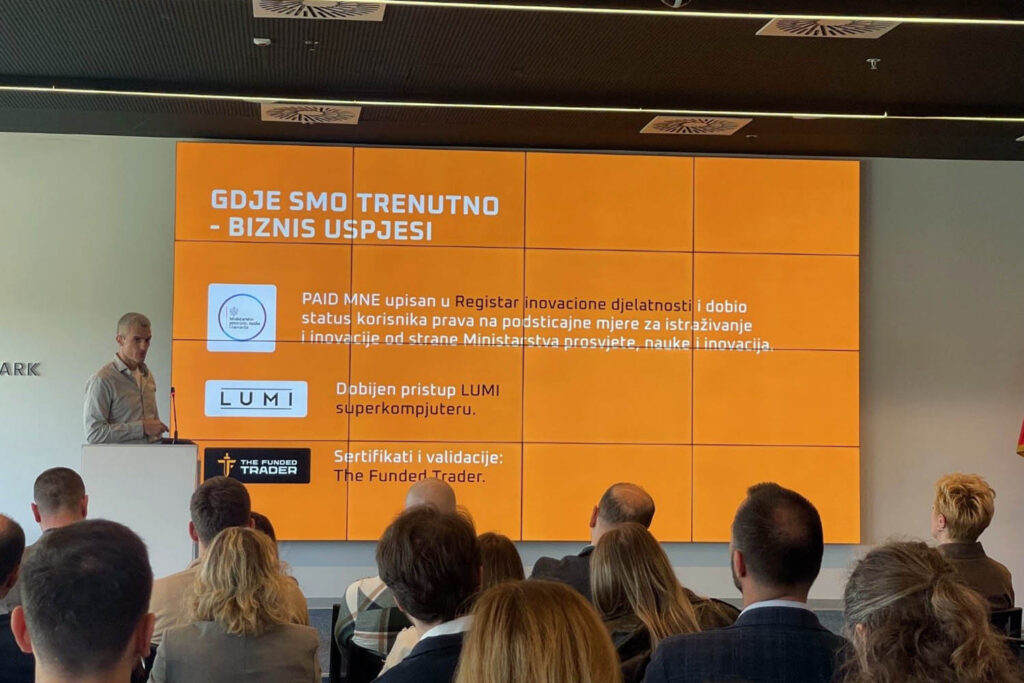
Among the STP residents who participated in the event and presented their ideas were ONEAI, Artificial Intelligence Software Solutions, Azoteq, G Consulting, the Institute of Contemporary Technologies of Montenegro, Logik Montenegro, Modrone, Montezuma, Uhura, Paid.mne, Ninamedia Clipping, Sjever.me, the Center for Finance, and Web Falcon.
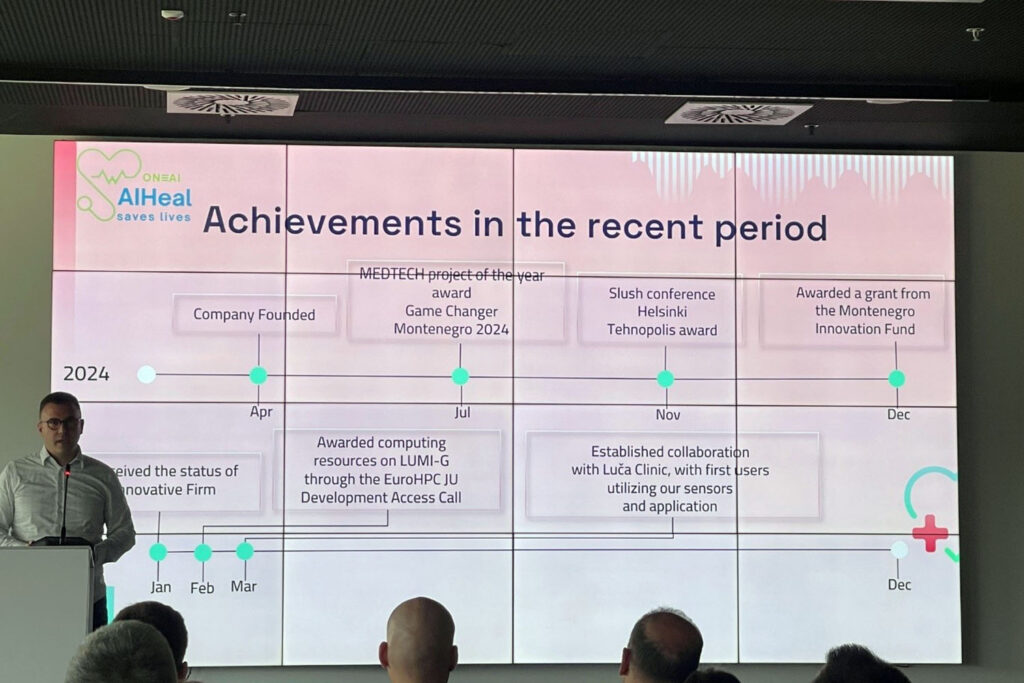
It was inspiring to hear testimonials from Uhura, Paid.mne, and ONEAI, who already benefit from access to leading EuroHPC supercomputers, including LUMI and LEONARDO. These success stories are the result of fruitful collaboration with NCC Montenegro and the support received through Development Calls.
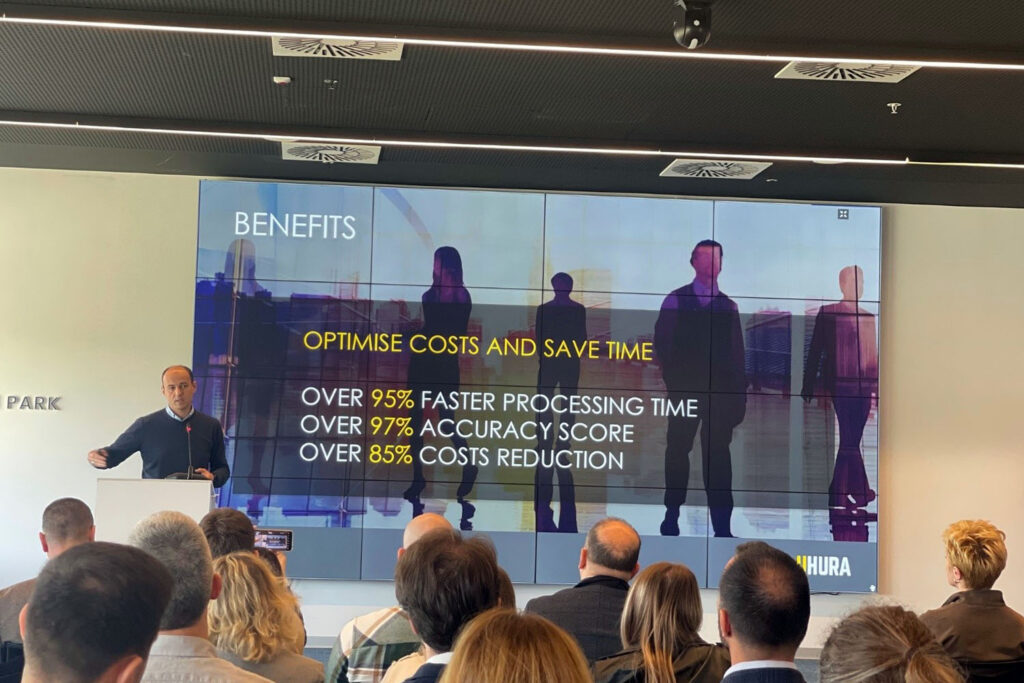
In this vibrant setting, HPC NCC Montenegro representatives engaged with prospective companies and innovative teams to raise awareness of the Montenegrin NCC and European HPC resources, explore potential collaborations and training opportunities, and support access to advanced computing infrastructure for research, development, and innovation.
The NTP Open Day proved to be a dynamic platform for identifying HPC/AI potential, strengthening partnerships, and accelerating digital innovation in Montenegro [link].


